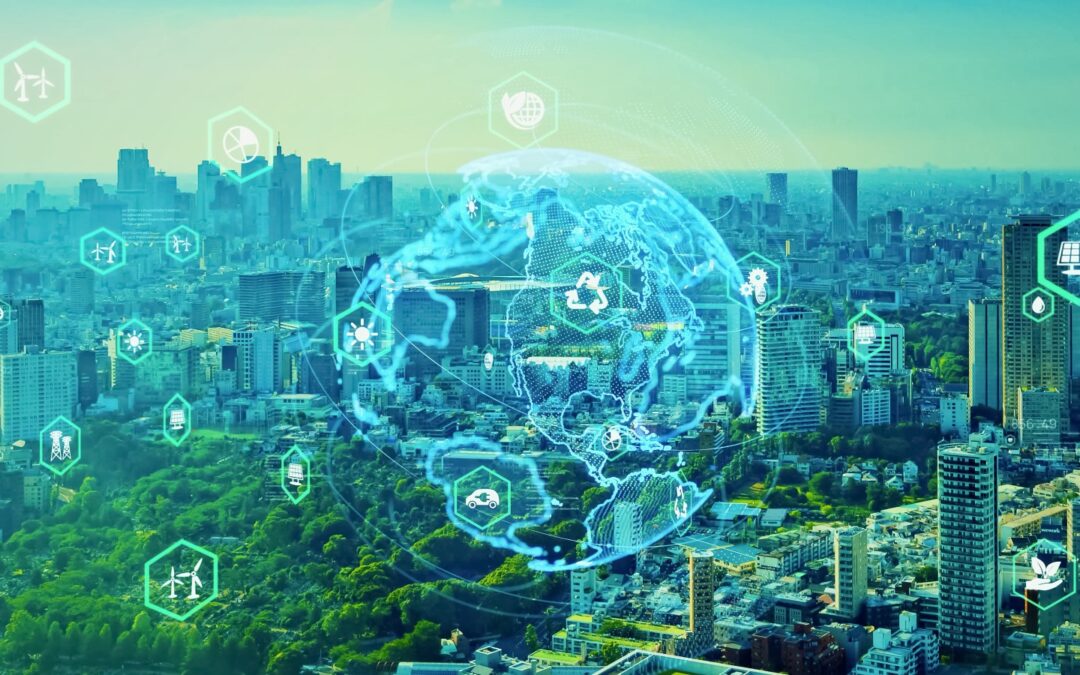- Guideline 1: Enable forward-looking, adaptive and smart urban development with the help of integrated structures
- Guideline 2: Use digital technologies to pave the way for achieving climate targets
- Guideline 3: Understanding information security and data protection as key factors for resilience – developing and implementing concepts with corresponding standards
- Guideline 4: Designing digital services in the local authority group in an ecologically, economically and socially sustainable way
At the Smart Country Convention, interested parties and participants were asked about resilient urban development and the role of digitalization, among other things. interviewed. It became clear that digitalization can be an important factor in making certain data visible and thus making it easier to analyse impacts and possible solutions. This includes the digital twin, for example. The digital replication of cities makes it possible to correlate different data and test changes without great effort. aconium GmbH is also active in this forward-looking field, for example by currently supporting various Bavarian municipalities in the TwinBy project with the development and implementation of 3D city models. These in turn serve as the basis for various use cases, which can be made accessible to administrative staff and citizens. They make it possible, for example, to simulate heavy rain and flood events or to display mobility behavior in city centers live. Publisher of the publication “Accelerated change and resilience – guidelines for the development of resilient cities in the digital age” are the Federal Institute for Research on Building, Urban Affairs and Spatial Development (BBSR) and the Federal Ministry of Housing, Urban Development and Building (BMWSB). The National Dialogue Platform Smart Cities was set up by the German government in 2016 to identify the opportunities and challenges of digitalization for urban development with the aim of shaping the digital transformation in municipalities in a sustainable, public welfare-oriented manner and in the interests of integrated urban development. The topic of resilience also plays a major role in the Smart Cities model projects, which are also part of the BMWSB, and is the subject of accompanying research. This came to the conclusion that digitalization can strengthen urban resilience, e.g. through improved information and planning bases such as real-time monitoring of environmental and weather data or concepts for the sustainable use of water. This allows a city to benefit, for example, from protection against flooding and low water levels and draw conclusions about future-relevant adaptation measures in the area of water management.

